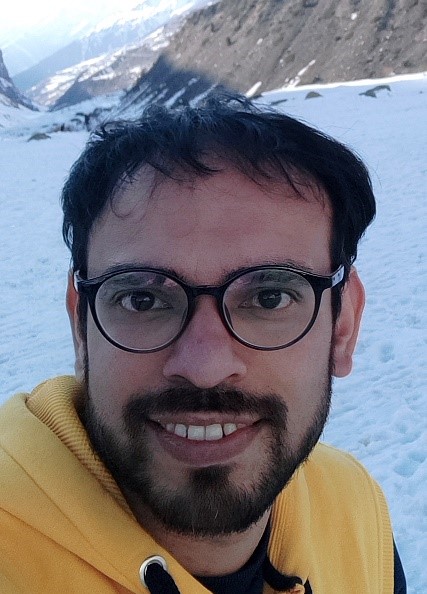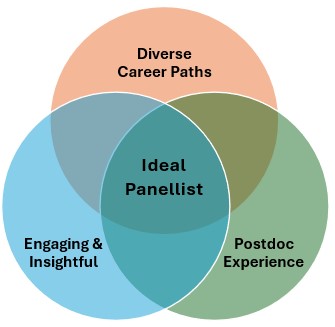It Takes a Village …! What a Panel on Resilience Taught Me
Posted on: 24 February 2025 by Dr. Lakshay Jain in Blog posts

As part of the Research Staff Conference 2024 at the University of Liverpool, Dr Lakshay Jain organised and moderated a panel on building career resilience. In this blog post he shares some behind-the-scenes insights and key takeaways from the session.
In today’s world, uncertainty is the only certainty for researchers with short-term contracts, funding pressures, and career twists being a default part of the journey. Whether it is handling research setbacks, navigating through short fixed-term contracts, or adapting to the evolving job market, resilience is often seen as the key to long-term success. But what does that actually mean? How do we build resilience to thrive and not just survive? And how can we build it in a way that supports not just individual success, but a healthier work culture overall?
To address these crucial questions, the Steering Committee of UoL Research Staff Association organised a panel on this theme as a part of the Research Staff Conference 2024. The aim was to bring together speakers who could offer practical strategies, share real experiences, and engage in an honest discussion about what it takes to thrive in academia and beyond.
As both the organiser and moderator, I had the unique privilege of shaping this conversation – from selecting the panellists to steering the discussion on stage. In this post, I will share some behind-the-scenes insights, key takeaways, and the most thought-provoking moments from the session.
Defining Resilience: A Common Starting Point
While planning the panel, one question kept coming up: What do we mean by resilience? It is something that I hear often, but its interpretation varies. Some see it as mental toughness, others as the ability to adapt, and for many, it is simply about surviving challenges without burning out.
To have a meaningful discussion, we wanted to ensure that both panellists and attendees had a shared understanding of resilience – whether simply as the ability to “bounce back”, or as the capacity to grow, evolve, and sustain a fulfilling career over time. With this shared understanding in mind, the next challenge was inviting the right mix of speakers who could bring these ideas to life.
The Struggle to Find the Right Panellists
This was one of the trickiest parts of organising this panel (more on why soon!). Given the importance and depth of the topic, we were determined to bring together panellists with unique experiences. We looked for:
- A diverse mix of speakers who stayed in academia or moved beyond academia or transitioned into hybrid roles.
- Former postdocs who navigated career transitions successfully – so attendees could hear from people who had been in their shoes.
- Engaging and insightful speakers – because expertise alone does not always make for a dynamic panel.

After multiple rounds of outreach, we managed to bring together a fantastic group of panellists who shared not just their successes but also the struggles they faced in their own careers, and how they overcame them. As I mentioned earlier, it was not all smooth sailing! While the enthusiasm from potential panellists was evident, time and financial commitments prevented some from participating. But in the end, resilience and perseverance were key to making it happen.
The next step was to identify meaningful topics to shape a well-rounded and insightful discussion for the conference attendees.
Framing the Conversation: Four Key Themes
Resilience is a huge topic, and we wanted to dive deep below the surface. To keep the conversation focused and impactful, we structured the discussion around four core themes:
- Navigating Career Uncertainty – Short-term contracts, funding challenges, and unpredictable career paths are all part of the “researcher life”. One panellist shared how they struggled with job insecurity but found stability by actively networking and seeking advice from mentors. This was a reminder that sometimes resilience comes from being open to opportunities beyond the expected path.
- Building personal resilience in high-stress moments – We asked the panellists about the strategies that helped them stay resilient in high-stress moments. Their responses highlighted the importance of prioritising well-being through taking breaks, seeking mentorships, and building strong support networks by engaging with family, friends and colleagues.
- Beyond the Individual – A kinder, more sustainable workplace. The discussions emphasised encouraging collaboration over competition and normalising conversations about well-being.
- Learning from others – Navigating difficult moments or career decisions. The panellists reflected on having role models who provided guidance and reassurance and learning from peers.
After the engaging and thought-provoking discussion, I walked away with key insights not just from the panellists, but from the experience of organising this panel itself.
Reflections: What This Panel Taught Me
Long before the panel discussion took place, the process of organising it had already taught me a lot about resilience. I quickly realised that early planning and persistence were key to finding the right speakers. Crafting a meaningful discussion required careful thought, not just in selecting the panellists, but in shaping questions that captured both the diverse realities of resilience and the depth of this topic. It was a reminder that these conversations don’t happen by chance; they need intentional spaces where people feel supported in sharing their experiences.
Listening to the panellists’ experiences and the discussions, it was clear that resilience is something we all wrestle with, whatever our career stage. This made the panel all the more valuable, as attendees could see they weren’t alone in facing these struggles. I also realised that while we all may understand and interpret resilience in our own way, there are many similarities in our experiences and so much to learn by sharing with each other.
A couple of things stood out for me – being kind(er) to yourself, investing in and nurturing your support networks and the power of mentorship. But there is one thing a panellist said that I will never forget:
“It takes an entire village to raise a child.”
This well-known African proverb was a powerful reminder that resilience is not just about me, or you, or them – it is about all of us, together.
Dr. Lakshay Jain is a Research Associate in the Reactor Physics group at UoL, passionate about advancing nuclear power as a means of sustainable, 24/7, low-carbon energy. He is currently focussing on the design of molten salt reactors and promoting public awareness of the benefits of nuclear energy. He is also a Deputy Co-Chair of the Research Staff Association (RSA). Lakshay’s research interests include advanced nuclear reactor design and the application of AI/ML to radiation transport and nuclear engineering challenges. Outside his research, he likes hiking and cooking.
Keywords: Managing uncertainty, Researchers, Research Staff Association, Resilience, Conference Panel.